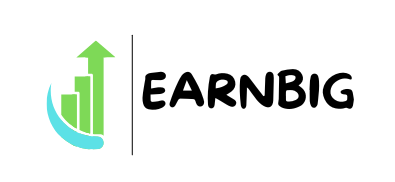Top 10 Programming Jobs That Can Earn You $5,000+ Per Month

The tech industry continues to dominate the global job market, offering lucrative opportunities for skilled professionals. If you’re considering a career in technology or looking to pivot into programming, you’re in the right place. Programming jobs consistently rank among the highest-paying careers, with salaries that can reach well into six figures—even for mid-level professionals.
In this comprehensive guide, we’ll explore the Top 10 Programming Jobs that offer exceptional earning potential, job security, and career growth. Whether you’re a coding novice or an experienced developer looking to specialize, understanding these high-demand roles will help you make informed decisions about your career trajectory.
Why Programming Jobs Are Your Ticket to Financial Success
Before diving into specific roles, let’s address the elephant in the room: why are programming jobs so lucrative? The answer lies in a perfect storm of factors:
- Explosive demand: Digital transformation across all industries has created an insatiable appetite for tech talent
- Skills gap: There simply aren’t enough qualified programmers to meet global demand
- High impact: Software drives business value, making skilled developers invaluable assets
- Remote flexibility: Many programming roles offer work-from-anywhere options, expanding opportunities
According to recent industry data, the median salary for software developers exceeds $110,000 annually in the United States, with specialized roles commanding significantly higher compensation packages.
The Top 10 Programming Jobs for Maximum Earnings

1. Machine Learning Engineer
Average Salary Range: $120,000 – $200,000+
Machine Learning Engineers sit at the intersection of data science and software engineering, building systems that can learn and improve from experience. This role demands expertise in:
- Python, R, and specialized ML frameworks (TensorFlow, PyTorch)
- Statistical modeling and algorithm development
- Big data technologies and cloud platforms
Why It Pays: Companies investing heavily in AI need experts who can transform theoretical models into production-ready systems. The specialized nature of this work, combined with limited talent availability, drives premium compensation.
Career Path: Start as a data scientist or software engineer, then specialize through advanced coursework and hands-on ML projects.
2. DevOps Engineer
Average Salary Range: $100,000 – $160,000
DevOps Engineers bridge the gap between software development and IT operations, ensuring seamless deployment and maintenance of applications. Key skills include:
- CI/CD pipeline management
- Cloud infrastructure (AWS, Azure, GCP)
- Containerization (Docker, Kubernetes)
- Infrastructure as Code (Terraform, Ansible)
Why It Pays: As companies accelerate their digital initiatives, the ability to deploy reliably and frequently becomes mission-critical. DevOps expertise directly impacts business velocity.
Career Path: Transition from system administration or software development with focus on automation and cloud technologies.
3. Full-Stack Developer
Average Salary Range: $90,000 – $150,000
Full-Stack Developers possess the versatility to work across the entire application stack—from database to user interface. Essential competencies include:
- Front-end technologies (React, Angular, Vue.js)
- Back-end frameworks (Node.js, Django, Spring)
- Database management (SQL and NoSQL)
- RESTful API design
Why It Pays: Companies value the efficiency of developers who can independently build complete features without handoffs between specialized teams.
Career Path: Many professionals start as either front-end or back-end developers before expanding their skill set to encompass both domains.
4. Blockchain Developer
Average Salary Range: $110,000 – $180,000
Blockchain Developers create decentralized applications and smart contracts, working with revolutionary technologies that extend beyond cryptocurrency. Required skills:
- Solidity, Rust, or other blockchain-specific languages
- Cryptography fundamentals
- Distributed systems architecture
- Smart contract security
Why It Pays: Blockchain technology is still relatively nascent, creating a scarcity of experienced developers as enterprises explore decentralized solutions.
Career Path: Background in traditional software development, followed by specialized blockchain training and personal projects.
5. Cloud Architect
Average Salary Range: $130,000 – $200,000
Cloud Architects design comprehensive cloud strategies, ensuring scalability, security, and cost-efficiency. Core competencies include:
- Multi-cloud platform expertise
- Security and compliance frameworks
- System design and architecture patterns
- Cost optimization strategies
Why It Pays: As organizations migrate critical workloads to the cloud, they need architects who can design robust, future-proof solutions. This senior-level role commands premium compensation.
Career Path: Progress from cloud engineer or solutions architect roles with extensive hands-on experience across cloud platforms.
6. Mobile Application Developer
Average Salary Range: $95,000 – $150,000
Mobile App Developers build applications for iOS, Android, or cross-platform frameworks. Essential skills:
- Swift/Objective-C (iOS) or Kotlin/Java (Android)
- Cross-platform frameworks (React Native, Flutter)
- Mobile UI/UX principles
- App store optimization
Why It Pays: With mobile devices dominating internet usage, companies prioritize exceptional mobile experiences. Skilled mobile developers who understand platform-specific nuances are highly valued.
Career Path: Start with one platform, master its ecosystem, then potentially expand to cross-platform development.
7. Cybersecurity Engineer
Average Salary Range: $100,000 – $175,000
Cybersecurity Engineers protect organizations from digital threats, implementing security measures and responding to incidents. Key skills:
- Security protocols and encryption
- Penetration testing methodologies
- Network security architecture
- Compliance standards (GDPR, HIPAA, SOC 2)
Why It Pays: Data breaches cost companies millions. Organizations invest heavily in security talent to prevent devastating attacks and protect customer trust.
Career Path: Background in network administration or software development, combined with security certifications (CISSP, CEH, Security+).
8. Data Engineer
Average Salary Range: $105,000 – $165,000
Data Engineers build and maintain the infrastructure that enables data-driven decision making. Required expertise:
- ETL pipeline development
- Big data technologies (Hadoop, Spark)
- Data warehouse design (Snowflake, Redshift)
- SQL optimization
Why It Pays: Data is often called “the new oil,” but raw data is useless without proper infrastructure. Data engineers enable analytics and AI initiatives that drive business value.
Career Path: Transition from database administration or software engineering with focus on data processing and storage systems.
9. Solutions Architect
Average Salary Range: $120,000 – $180,000
Solutions Architects design technical solutions that align business requirements with technical capabilities. Essential skills:
- System design and integration patterns
- Enterprise software knowledge
- Technical leadership and communication
- Multi-technology stack proficiency
Why It Pays: This role requires both deep technical expertise and business acumen—a rare combination that commands high compensation, especially in enterprise environments.
Career Path: Senior developers or technical leads who excel at stakeholder communication and strategic thinking.
10. Site Reliability Engineer (SRE)
Average Salary Range: $110,000 – $170,000
SREs ensure software systems remain reliable, available, and performant at scale. Core competencies:
- System monitoring and observability
- Incident response and troubleshooting
- Automation scripting (Python, Go)
- Performance optimization
Why It Pays: Downtime costs money. SREs prevent and minimize outages, directly impacting revenue and customer satisfaction.
Career Path: Progress from operations or software engineering roles with emphasis on system reliability and automation.
Maximizing Your Earning Potential with Programming Jobs
Landing a high-paying programming job requires more than technical skills. Here’s your action plan:
Build a Strong Foundation
| Skill Category | Priority Level | Time Investment |
|---|---|---|
| Programming fundamentals | Critical | 6-12 months |
| Data structures & algorithms | Critical | 3-6 months |
| System design | High | 3-6 months |
| Specialized technologies | High | Ongoing |
| Soft skills | Medium | Ongoing |
Create a Compelling Portfolio
Your portfolio demonstrates real-world capabilities. Include:
- Personal projects showcasing technical depth
- Open-source contributions proving collaboration skills
- Technical blog posts demonstrating communication abilities
- Problem-solving examples from platforms like LeetCode or HackerRank
Strategic Career Progression
Early Career (0-3 years)
- Focus on mastering fundamentals
- Work on diverse projects
- Build professional network
Mid-Career (3-7 years)
- Develop specialization
- Take on leadership opportunities
- Contribute to technical strategy
Senior Career (7+ years)
- Mentor junior developers
- Drive architectural decisions
- Influence technology direction
The Future of Earning with Programming Jobs
The programming landscape continues evolving, with emerging technologies creating new high-paying opportunities:
- Quantum Computing: Still experimental but promising astronomical salaries for early adopters
- Extended Reality (AR/VR): As the metaverse develops, XR developers will be in high demand
- Edge Computing: Processing data closer to its source requires specialized architectural knowledge
- Green Tech: Sustainable software development is becoming a priority, opening new specializations
Taking Action: Your Next Steps
Ready to pursue one of these lucrative Top 10 Programming Jobs? Here’s your roadmap:
Immediate Actions (This Week)
- Research which role aligns with your interests and existing skills
- Identify learning resources (online courses, bootcamps, university programs)
- Join relevant online communities and forums
Short-term Goals (1-3 Months)
- Complete foundational courses in your chosen specialization
- Start building portfolio projects
- Network with professionals in your target role
Long-term Strategy (6-12 Months)
- Apply for entry-level or transitional roles
- Contribute to open-source projects
- Consider relevant certifications
- Prepare thoroughly for technical interviews
Final Thoughts
The world of programming offers unparalleled opportunities for earning big, with the Top 10 Programming Jobs outlined here representing some of the most financially rewarding career paths available today. Whether you’re drawn to the cutting-edge innovation of machine learning, the critical importance of cybersecurity, or the architectural challenges of cloud systems, there’s a high-paying programming niche waiting for you.
Remember, success in these roles requires continuous learning, adaptability, and genuine passion for technology. The initial investment in education and skill development pays dividends throughout your career, with many professionals doubling or tripling their earnings within five years of focused specialization.
The tech industry rewards those who stay curious, embrace challenges, and consistently deliver value. Your journey toward a lucrative programming career starts with a single line of code—what will you build?
Ready to accelerate your programming career? Explore our related guides on interview preparation, portfolio development, and specialized technology deep-dives to maximize your earning potential in the tech industry.
Read more : Top Programming Skills Every Tech Professional Needs to Get Hired in 2025
Read more : Top 7 Websites for Breaking Trading News Every Investor Should Follow in 2025

